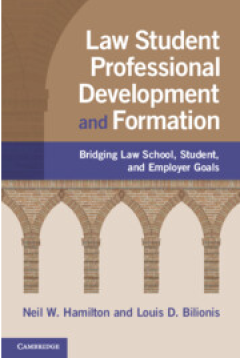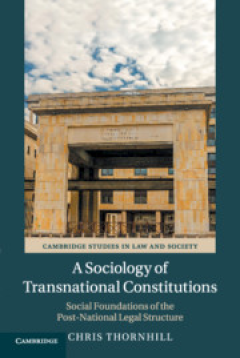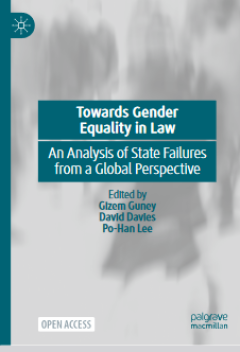Ditapis dengan

Combining the Legal and the Social in Sociology of Law: An Homage to Reza Ban…
This book pays homage to Reza Banakar, who passed away in August 2020, exploring the many different areas of socio-legal research that he worked on and influenced. It begins with a summary of his career and explains how he sparked a debate on the identity and aims of legal sociology. The book is then split into 5 sections: - Theory, including chapters on normativity and the stepchild controvers…
- Edisi
- -
- ISBN/ISSN
- 978-1-50995-940-2
- Deskripsi Fisik
- 495 hlm.
- Judul Seri
- -
- No. Panggil
- -

Law Student Professional Development and Formation: Bridging Law School, Stud…
Law schools currently do an excellent job of helping students to 'think like a lawyer,' but empirical data show that clients, legal employers, and the legal system need students to develop a wider range of competencies. This book helps legal educators to understand these competencies and provides practical ways to build them into a law school curriculum. Based on recommendations from the Americ…
- Edisi
- -
- ISBN/ISSN
- 978-1-108-77632-5
- Deskripsi Fisik
- 186 hlm.
- Judul Seri
- -
- No. Panggil
- -

A Sociology of Transnational Constitutions: Social Foundations of the Post-Na…
This book focuses on the rise of transnational constitutional laws, primarily created by the interaction between national and international courts, and by the domestic transformation of international law. Through detailed analysis of patterns of institutional formation at key historical junctures in a number of national societies, it examines the social processes that have locked national state…
- Edisi
- -
- ISBN/ISSN
- 978-1-13983390-5
- Deskripsi Fisik
- 540 hlm.
- Judul Seri
- -
- No. Panggil
- -

Law, Solidarity and the Limits of Social Europe: Constitutional Tensions for …
This thought-provoking book examines the socio-legal mechanisms that drive EU constitutional tensions, as well as the role of principles and values in re-directing EU law and policy towards a democratic Social Europe. It addresses the current limits of Social Europe in relation to different areas of EU law, offering a critical assessment of the present status of EU integration. Covering areas …
- Edisi
- -
- ISBN/ISSN
- 978-1-80088-551-6
- Deskripsi Fisik
- 236 hlm.
- Judul Seri
- -
- No. Panggil
- -

Towards Gender Equality in Law: An Analysis of State Failures from a Global P…
This book aims to find out how and why states in various regions and of diverse cultural backgrounds fail in their gender equality laws and policies. In doing this, the book maps out states’ failures in their legal systems and unpacks the clashes between different levels and forms of law—namely domestic laws, local regulations, or the implementation of international law, individually or in …
- Edisi
- -
- ISBN/ISSN
- 978-3-030-98072-6
- Deskripsi Fisik
- 262 hlm.
- Judul Seri
- -
- No. Panggil
- -
 Karya Umum
Karya Umum  Filsafat
Filsafat  Agama
Agama  Ilmu-ilmu Sosial
Ilmu-ilmu Sosial  Bahasa
Bahasa  Ilmu-ilmu Murni
Ilmu-ilmu Murni  Ilmu-ilmu Terapan
Ilmu-ilmu Terapan  Kesenian, Hiburan, dan Olahraga
Kesenian, Hiburan, dan Olahraga  Kesusastraan
Kesusastraan  Geografi dan Sejarah
Geografi dan Sejarah